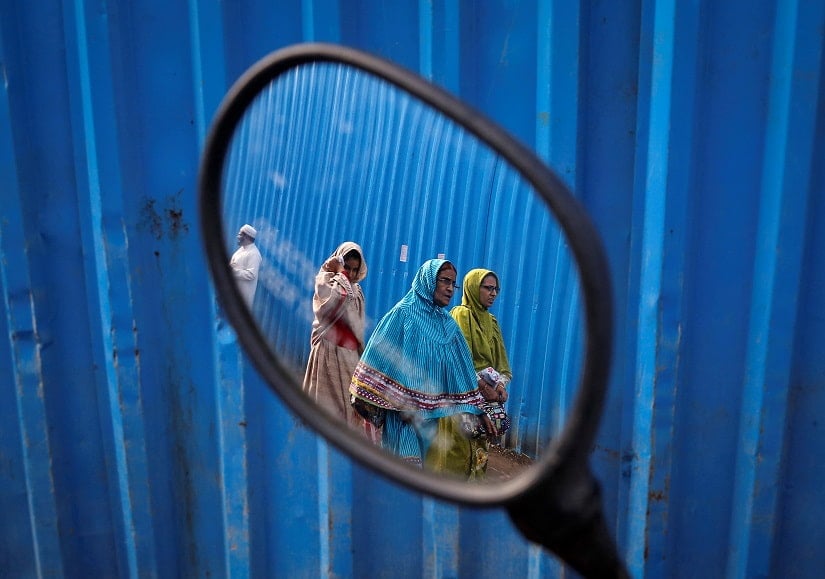Amid allegations that Dawoodi Bohra women are oppressed, mute spectators of a patriarchal system , we — the Dawoodi Bohra Women’s Association for Religious Freedom (DBWRF) comprising over 72,000 practicing Dawoodi Bohra women — would like to set the record straight about our practices and the community, in light of the International Day of Zero Tolerance for FGM (female genital mutilation). DBWRF wishes to highlight that Dawoodi Bohra women are among the most progressive and educated in India, having a near 100 percent literacy rate. Further, women from the community hold powerful positions across various sectors such as IT, law, medicine, education, engineering, architecture and retail businesses among others; we are empowered and in fact, encouraged to build careers for ourselves. Personalities such as Mariya Ratlami (ISRO scientist), Rashida Vandeliwala (dietician), Tasneem Amiruddin (illustrator) are living proof of the impact of Dawoodi Bohra women. Our religious texts too call for empowering women, and rectors have compared the position of women in the community to that of the brain in the body. Dawoodi Bohra women are also driven by principles of philanthropy and work to drive solutions pertaining to digital literacy, awareness around first-aid, cleanliness, menstrual hygiene and even end-to-end services for differently-abled children — to name just a few initiatives. [caption id=“attachment_6039321” align=“alignnone” width=“825”]  Dawoodi Bohra women are among the most progressive and educated in India, having a near 100 per cent literacy rate. Image for representation only. REUTERS[/caption] The women of the community are deeply pained that despite having cemented their position as business leaders, responsible citizens, loving mothers and homemakers, in a highly educated and gender equal community, we have come under scrutiny for our harmless practice of female circumcision (khafz). The same has been wrongly labelled as female genital mutilation by those with an agenda against the community. DBWRF wishes to state that there is a big difference between khafz and FGM. The former, as practised by the community is a harmless procedure, unlike FGM. Khafz is safe and performed according to standard operating procedures which have been in circulation within the community. These guidelines laid down by the DBWRF mandate that khafz be carried out only by a trained and qualified medical practitioner in an OPD/clinic and with the consent of the mother/guardian of the child. Khafz has been a practice within the community for over 1,400 years. Just as men of the community undergo circumcision, so do our women, and hence we see it more as an act of gender parity. The standard operating procedures for conducting female circumcision sets out the manner in which khafz is performed, with great care of the child, under the expertise of a trained medical practitioner and with the consent of the mother or guardian. We are well educated and empowered women who are committed towards ensuring the safety of our daughters and would never do anything to harm them. The confusion arises since most people are unaware that unlike FGM, khafz involves a harmless nick on the prepuce. Female circumcision is far less invasive than male circumcision. During khafz, the clitoris is not touched at all, and great care is taken by trained medical practitioners to ensure safety at all levels. Khafz is based on and motivated by a gender equal interpretation of the Abrahamic Covenant (Genesis 17 of the Hebrew Bible), and like the men, women of the community also undergo circumcision. It is disturbing to see our harmless, religious and cultural practice being labelled as female genital mutilation by those with a vested interest against our community. DBWRF wishes to state that there should not be an iota of doubt surrounding khafz, and as a forward-thinking yet culturally-rooted community, we are fighting to preserve our religious practice as devout Dawoodi Bohras. Samina Kanchwala is secretary, DBWRF. Dawoodi Bohra Women for Religious Freedom (DBWRF) represents over 72,000 practising Dawoodi Bohra women in India. DBWRF advocates for the rights of Dawoodi Bohra women in India to ensure that they live with dignity and honour and are able to exercise their religious and cultural rights, including their right to practise khafz (female circumcision).
Amid allegations that Dawoodi Bohra women are oppressed, mute spectators of a patriarchal system, we — the Dawoodi Bohra Women’s Association for Religious Freedom (DBWRF) comprising over 72,000 practicing Dawoodi Bohra women — would like to set the record straight about our practices and the community, in light of International Day of Zero Tolerance for FGM (female genital mutilation).
Advertisement
End of Article


)

)
)
)
)
)
)
)
)



